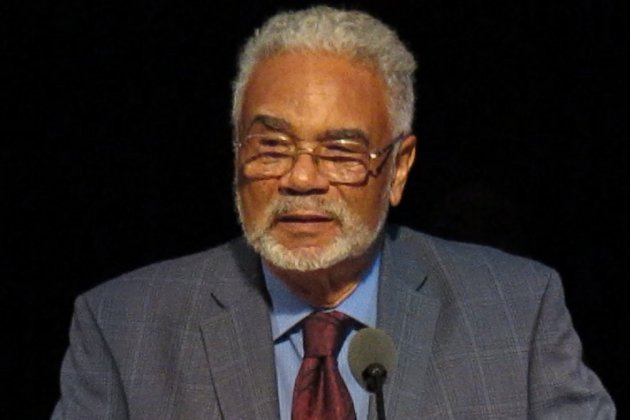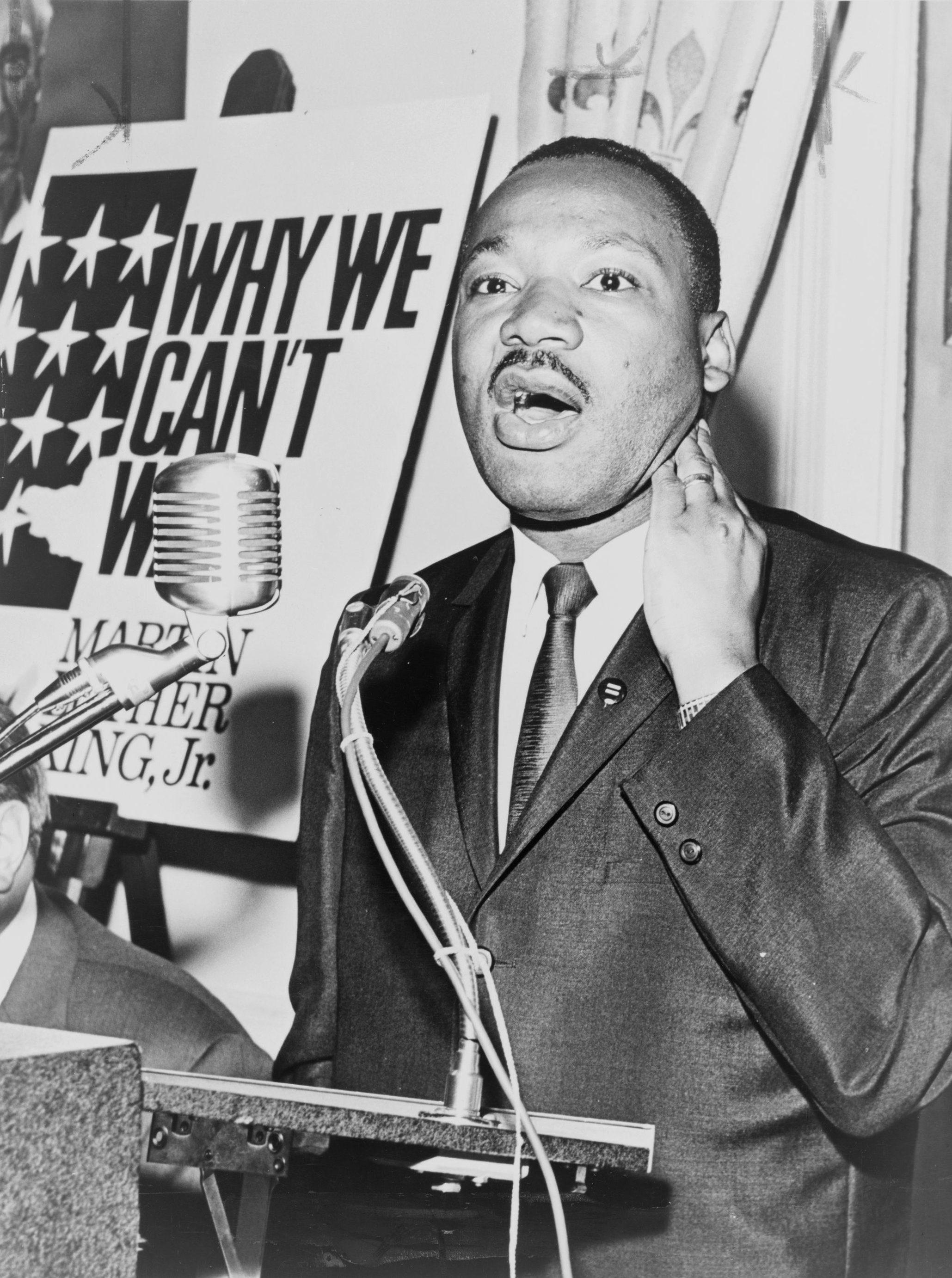Clayborne Carson, director of the Martin Luther King Jr. Research and Education Institute, has said that he is "shocked and disturbed" after being misquoted in a Spanish newspaper, which claimed incorrectly he had said that Martin Luther King Jr. would have opposed the Catalan independence movement. In a post on his blog, Carson has denied information published in Spanish digital newpaper El Confidencial, which said that he was unhappy with the references to the figure of Martin Luther King Jr recently made by Catalan president Quim Torra. In fact, Carson's exhaustive clarification goes as far as to say he is pleased when any movement "chooses the kind of nonviolent tactics and strategies that King advocated", adding that, although he didn't claim to be an expert on the Catalan independence issue, he would "welcome a chance" to talk to the movement's leaders.

Clayborne Carson. Photo: Well P.L.
The statement by US history professor Carson says his words were "distorted" in the Spanish press, and he sets out six points to clarify his views: firstly, he affirms that he can't speak in the name of King about current problems that King never addressed. He then says that he is "pleased" when "any movement" uses the non-violent techniques that King and other leaders always advocated. Thirdly, without referring explicitly to the Catalan independence referendum or the issue of Catalonia's political prisoners, Carson writes that he feels "personally disturbed" when "nonviolent protesters and leaders are violently suppressed or punished by police and government officials".
On Martin Luther King, Jr., and the Catalan Independence Movement #catalanrepublic https://t.co/XFHFu5IrWC via @ClayborneCarson
— Clayborne Carson (@ClayborneCarson) 15 of septiembre of 2018
Carrying on, Carson does admit that in the interview with the El Confidencial journalist, he affirmed that the independence of Catalonia could be harmful to the rest of Spain and he says that he is "skeptical" on whether the oppression of Catalans could be compared with that of American blacks. In his final points, he admits that, even though he has been to Catalonia, it is not his field of specialization and says that would like to be able to talk to Catalan leaders and get to know the case better.
Catalan president Quim Torra has made references to the 1960s US struggle for civil rights in several interviews. And in a major speech on 4th September, Quim Torra called for Catalans to undertake a march for civil rights, to continue last until the verdict is delivered in the case of the Catalan political prisoners, who have been preventively jailed for months and are facing charges arising from the independence referendum held last October 1st.
The misquoted words of Professor Clayborne Carson received attention from some important sources in Spanish politics. The Spanish foreign minister himself, Josep Borrell, retweeted the inaccurate news story from El Confidencial. Borrell's Catalan foreign affairs counterpart, Ernest Maragall, then highlighted this in a tweet of his own.
Comparto con vosotros por su interés este artículo de @elconfidencial
— Josep Borrell Fontelles (@JosepBorrellF) September 14, 2018
El Instituto Luther King de EEUU pide que Torra deje de usar su figura: "Es hipócrita" https://t.co/SChTFHtEyW
Translation:
I share with you this article by El Confidencial. The Luther King Institute in the US asks Catalan president Torra to stop using his figure: "It is hypocritical" - Josep Borell Fontelles (Spanish foreign minister)
Dedicated to Mr. @JosepBorrellF and to its|his|her|their enthusiasm (or it|he|she is an obsession?) against @QuimTorraiPla and the Catalan @govern.
— Ernest Maragall (@ernestmaragall) 15 of septiembre of 2018
It would be advisable a major attention and a certain respect for other ideas, persons and institutions.
Disposed to talking to calm and serenity when you want. pic.twitter.com/7UjCgYVRmV
Translation:
Dedicated to Mr. Josep Borell and his enthusiasm (or is it obsession?) with Catalan president Quim Torra and the Catalan government. It would be advisable to give more attention and a certain respect to other ideas, people and institutions. Ready to talk calmly and serenely whenever you want. - Ernest Maragall (Catalan foreign minister)
Prof. Clayborne Carson's original text:
On Martin Luther King, Jr., and the Catalan Independence Movement
I was shocked and disturbed today to discover that I had been misquoted in a Spanish newspaper that claimed I believe Martin Luther King, Jr. would have opposed the Catalan independence movement. This distorts what I actually said in response to a Spanish reporter’s questions about whether proponents of Catalan independence were justified in using King’s name to support their struggle. In order to correct misunderstandings, I wish to clarify six points: First, I don’t speak for King or wish to guess his views about current issues that he never addressed during his lifetime. Second, I’m pleased when any movement chooses to use the kind of nonviolent tactics and strategies that King advocated. King did not own or invent the idea of nonviolent resistance to injustice, and it is admirable whenever a movement adopts the nonviolent principles perfected by King and other previous leaders and movements. Third, I am personally disturbed whenever nonviolent protesters and leaders are violently suppressed or punished by police and government officials. Fourth, when the reporter and I discussed the possibility that the secession of the prosperous Catalonia region might damage the rest of Spain, I conceded that this might be the case. Fifth, when the reporter and I discussed whether it was right to compare the oppression of Catalans to that of black Americans, I expressed skepticism that the two situations were directly comparable. Sixth, and finally, although I’ve visited the Barcelona on several occasions and have followed press reports about the independence movement, this is not my area of expertise. I have never talked to any Catalan leaders (although I would welcome a chance to do so). I’ve devoted the past three decades to studying what King actually said during his lifetime rather than speculating about what he might have said if his life had not been cut short by assassination.

